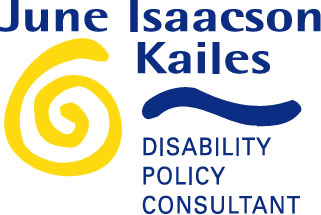



Symbolic
planning
The
concept of
symbolic planning contrasts with FEMA language of “getting real”. In order to move beyond symbolic planning to
real planning, first there is likely to be a need to admit that the
existing
plan is not completely real. That is, it
cannot be operationalized to achieve even the most well intentioned
objectives.
The 2013 New
York City lawsuit appears
to be moving the City in the direction.
Paul
Hewett, in Organizational
Networks and Emergence During Disaster Preparedness: The Case Of An
Emergency
Assistance Registry (2013) applies the concept of symbolic planning
to
registries: “In
the mold of what Clarke (1999) called
symbolic planning, communities that establish registries solely for
compliance
may do so to indicate to their citizens that they are doing something
about the
special needs problem. Communities that appear to fit this category are
those
that place caveats in their registration marketing and registration
material
indicating that enrollment is not a promise of rescue or special
assistance
during a disaster. However, such statements do show recognition on the
part of
the community that some type of implied contract exists with the
enrollee.” (p
14)
The
Lee Clarke book he cites, “Mission improbable: Using
fantasy documents to tame disaster” is
required reading in some FEMA courses. A book
description of Clarke’s book is on Amazon:
“How
does the government or a business plan for an unimaginable
disaster-a meltdown at a nuclear power plant, a gigantic oil spill, or
a
nuclear attack? Lee Clarke examines actual attempts to "prepare" for
these catastrophes and finds that the policies adopted by corporations
and
government agencies are fundamentally rhetorical: the plans have no
chance to
succeed, yet they serve both the organizations and the public as
symbols of
control, order, and stability. These "fantasy documents" attempt to
inspire confidence in organizations, but for Clarke they are disturbing
persuasions, soothing our perception that we ultimately cannot control
our own
technological advances.
“For example, Clarke studies corporations' plans for cleaning up oil
spills in
Prince William Sound prior to the Exxon
Valdez debacle, and he finds that the accepted strategies were
not just
unrealistic but completely untenable. Although different organizations
were
required to have a cleanup plan for huge spills in the sound, a really
massive
spill was unprecedented, and the accepted policy was little more than a
patchwork
of guesses based on (mostly unsuccessful) cleanups after smaller
accidents.
“While we are increasingly skeptical of big organizations, we still
have no
choice but to depend on them for protection from large-scale disasters.
We
expect their specialists to tell the truth, and yet, as Clarke points
out,
reassuring rhetoric (under the guise of expert prediction) may have no
basis in
fact or truth because no such basis is attainable.
“In uncovering the dangers of planning
when implementation is a fantasy, Clarke concludes that society would
be safer,
smarter, and fairer if organizations could admit their limitations.”
“We
don’t plan for easy in FEMA…we plan for real.”
FEMA Administrator
Craig Fugate


 jik@pacbell.net
jik@pacbell.net
© 2014 June Isaacson
Kailes, Disability Policy Consultant, All Rights Reserved.
Created1/1/14
| Updated 07.10.14